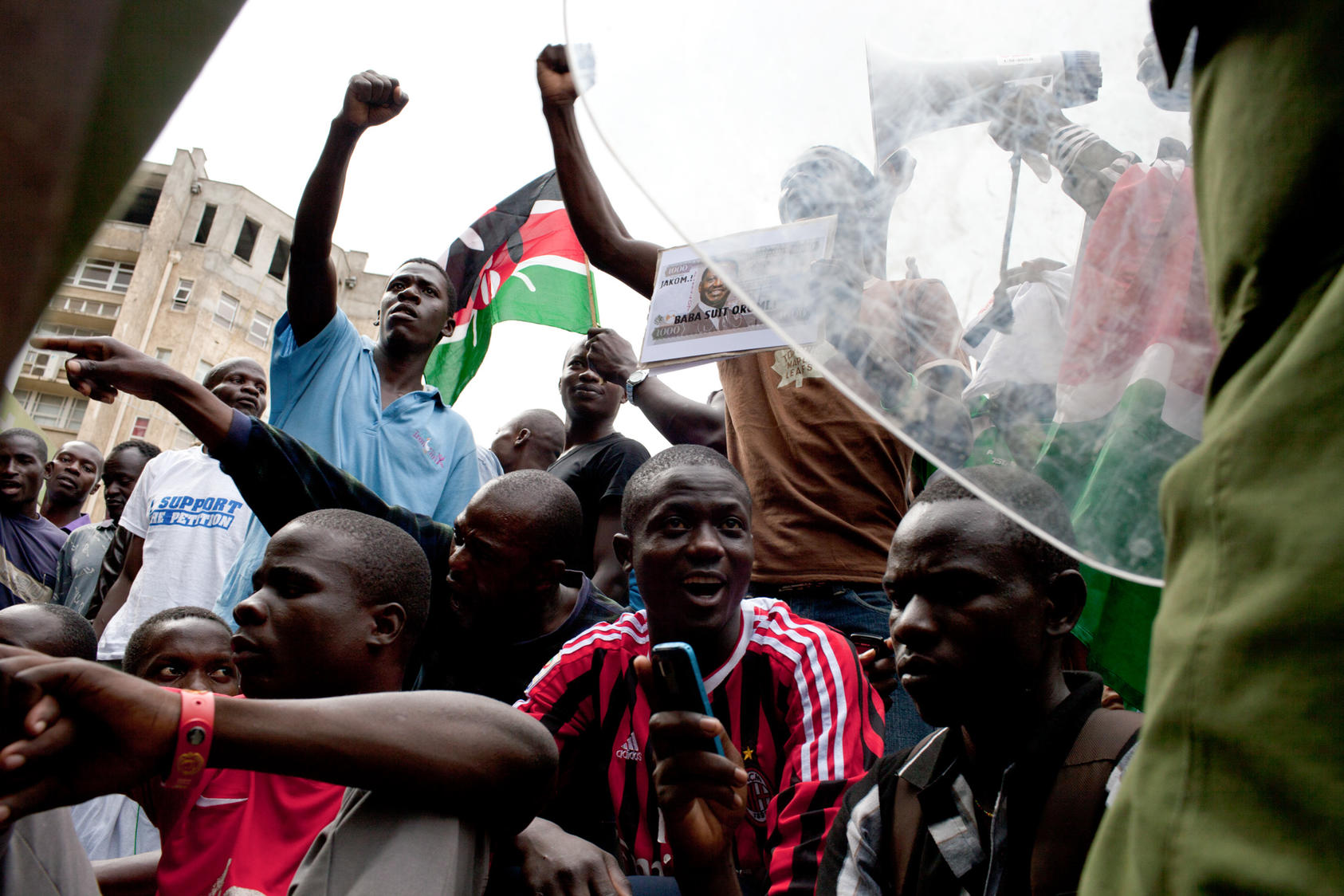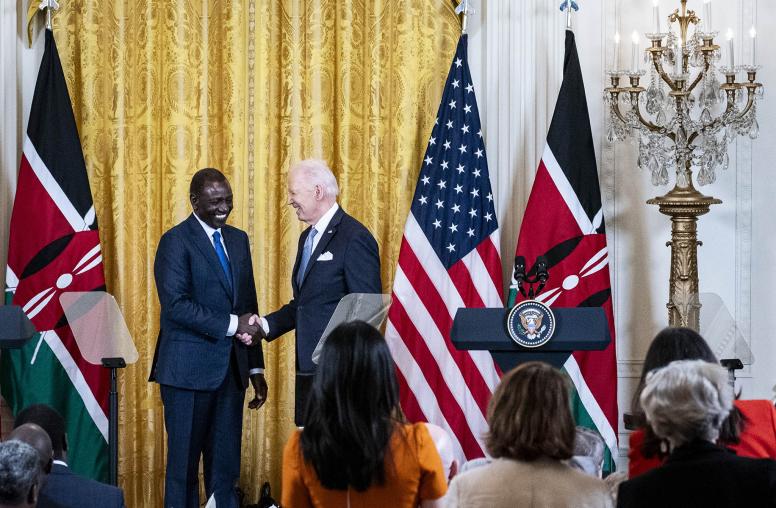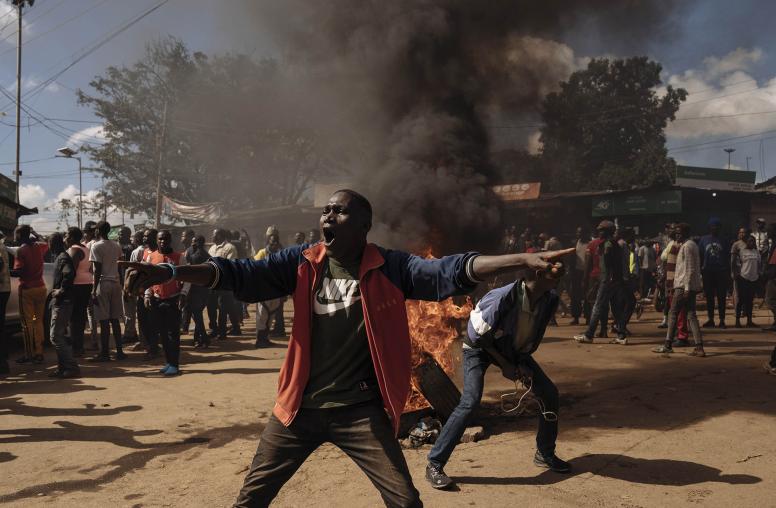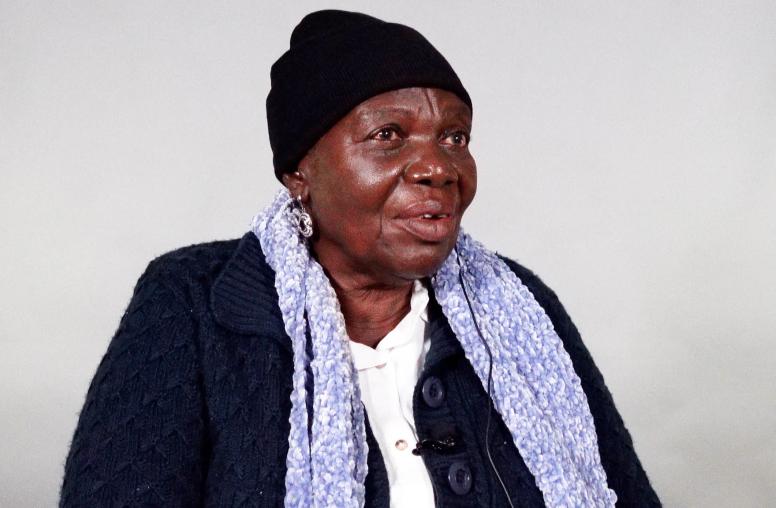International Election Fraud Alerts May Spark Violence
USIP Award Winner’s Research Documents Confounding Effects
Condemnations of election fraud by international monitors have become staples of global efforts to advance democratic practices and honor the will of a country’s citizens. But what if these denunciations actually make things worse? That was the finding from three years of research conducted by the winner of the U.S. Institute of Peace’s first Peace Dissertation Prize, Inken von Borzyskowski.

Now an assistant professor of political science at Florida State University, von Borzyskowski’s dissertation, “A Double-Edged Sword: The Effects of International Assistance on Election Violence,” outlines the effects of technical assistance that international organizations provide to election commissions to improve preparations for balloting, as well as the impact of international election monitoring.
“The counterintuitive findings, that international critiques of election conduct encourage violent challenges, provide an important and powerful lesson.” – Peace Dissertation Prize Judges
Using data from elections in 39 countries in sub-Saharan Africa between 1990 and 2008, she determined that both technical assistance and monitoring can have a major impact on the outcome of elections, but not always good.
The results have “tremendous implications for the field of practice,” said Lauren Van Metre, USIP’s acting associate vice president for Applied Research on Conflict. Jeff Helsing, associate vice president of USIP’s training arm, the Academy for International Conflict Resolution and Peacebuilding, said the findings also have the potential to affect USIP’s work on ways to prevent election-related violence.
The panel of judges for the Peace Dissertation Prize, which comes with a $1,000 award, praised von Borzyskowski’s methodology and the significance of the conclusions.
“What impressed the committee the most was that the counterintuitive findings, that international critiques of election conduct encourage violent challenges, provide an important and powerful lesson in confronting post-election violence,” according to the prize award letter.
Von Borzyskowski’s effort to quantify the efficacy of international elections assistance approaches is part of a growing emphasis by USIP and the broader international community to research electoral violence and prevention efforts to determine which measures are most effective. Her findings correlate with USIP’s own research that prevention and nonviolence are closely related—though not all assistance is equally useful.
Capacity and Credibility
Technical assistance prior to an election increases the capacity and, even more so, the credibility of election commissions, von Borzyskowski discovered, thus increasing public trust in election results and leading to fewer violent challenges after polling occurs. This finding was borne out in Kenya’s 2013 elections, for example, in which assistance to the election commission, among other reforms, strengthened its credibility and contributed to a largely peaceful process. That was in contrast to the country’s 2007 elections, which led to widespread violence spilling into the next year that killed 1,100 and forced 650,000 to flee their homes.
Election monitoring, however, can have the opposite effect. Using statistical analysis, case studies and a formal model, von Borzyskowski found that international condemnation of an election, in the form of a negative report by an international election monitor, is associated with an increase of 35 percentage points in the probability of post-election violence.
“Negative reports indicate that the loser [of the election] likely has greater popular support than the official result suggests,” von Borzyskowski wrote in her dissertation for her Ph.D. in International Relations, Methodology, and Comparative Politics at the University of Wisconsin-Madison in May 2014. “Further, a negative report helps to crystallize support behind the loser in favor of overturning the result.”
A loser is more likely to challenge the result if the candidate seems to be in a position to win a post-election fight, she said.
“By increasing the loser’s incentives to challenge the result, a condemnation can also increase the risk of violence—either because the loser challenges violently or because the loser’s challenge is violently crushed,” she wrote. “Thus, credible international election observers can at times increase domestic conflict and have lasting influence on national politics.”
Most recently in Uganda’s troubled election last month, in which President Yoweri Museveni claimed a victory that will extend his 30-year rule of the country, international observers criticized the balloting for its lack of transparency and said the government had hampered opposition campaigns with tactics such as constricting access to media and using police to suppress campaign rallies. Opposition candidate Kizza Besigye subsequently refused to concede the election and was arrested. While it’s hard to know immediately whether or how the international observer statements affected Besigye’s decision, the actions and reactions fit the pattern.
The Monitor’s Dilemma
Von Borzyskowski’s research findings leave international elections monitoring officials with a difficult choice. “While observers may increase the conflict risk with a condemnation, endorsing fraudulent elections reduces their credibility over the long run,” she wrote.
“One potential solution to this dilemma is to not put observers in this situation,” she continued. When initial assessment missions indicate that elections aren’t likely to be meaningful, international organizations could refrain from sending full missions. “As an alternative to monitoring, organizations could sponsor technical assistance to support domestic reform efforts.”
Other options might include releasing monitoring results in interim statements over time before an election and afterwards, rather than in one large report, to begin to lay the groundwork for a potentially critical assessment and reduce any possible shock effect when it is issued, von Borzyskowski said. The European Union is looking into an approach like that so that its involvement doesn’t simply spike at the release of a post-election monitoring report and then disappear, said Jonas Claes, a USIP senior program officer who studies electoral violence and currently is based at the European Institute of Peace in Brussels.
International organizations might consider withdrawing from elections in anticipation of fraud, in order to not legitimize what will clearly be illegitimate elections and so that the party in power cannot use the report as a tool, said Claes. But simply withdrawing support—as the EU did in Burundi last year, and the U.S. in Bangladesh in 2014—may worsen any upheaval, because the deterring force of an international presence may in itself lessen the risk of violence.
International organizations that focus on the technical aspects of elections and those that aim to ensure elections remain peaceful also could coordinate more often.
“Often those organizational mandates will reinforce each other if an election is free and fair,” said Claes. “But that’s not always the case.”
He cited Nigeria’s 2011 elections, which were well-run and a step forward for the country’s democratic process, but were nonetheless violent. In advance of Nigeria’s more peaceful 2015 election, USIP conducted training for civil society leaders there on how to support a peaceful election process. More research like von Borzyskowski’s about the relationship between technical assistance and peacebuilding will be important in the future.
USIP will award the inaugural Peace Dissertation Prize to von Borzyskowski this week at the annual meeting of the International Studies Association in Atlanta, where she also will be speaking on two panel discussions related to United Nations sanctions issues. The meeting’s theme this year is peacebuilding.



